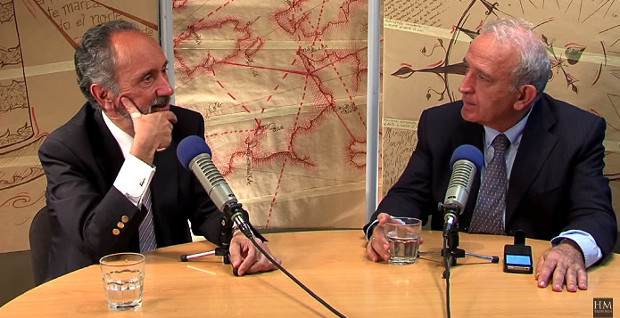Princeton se une a Chicago en la defensa de la libertad de expresión
No todo vale. La libertad de expresión tiene límites. Pero los grupos poderosos de lo "políticamente correcto" llevan tanto tiempo acusando a quienes les resisten de usar "lenguaje de odio" y de "violar los derechos humanos", que algunas universidades han sentido la necesidad de defender el espacio para la libre expresión, sin que sus miembros se sientan intimidados por las mafias violentas.
Chicago lo hizo.
Ahora se suma Princeton.
Leed.
Faculty adopts statement affirming commitment to freedom of expression at Princeton
Posted April 7, 2015; 04:07 p.m.
The Princeton faculty adopted a statement Monday, April 6, affirming the University's commitment to the principles of academic freedom and freedom of expression as essential to the University's educational mission.The proposal was made by Sergiu Klainerman, the Eugene Higgins Professor of Mathematics, and signed by 60 faculty colleagues. They recommended that Princeton adopt the major portion of a freedom of expression statement that a University of Chicago faculty committee issued in January.Here is the statement, which will be included in the Princeton policy guide, Rights, Rules, Responsbilities:Because the University is committed to free and open inquiry in all matters, it guarantees all members of the University community the broadest possible latitude to speak, write, listen, challenge, and learn. Except insofar as limitations on that freedom are necessary to the functioning of the University, the University fully respects and supports the freedom of all members of the University community "to discuss any problem that presents itself."Of course, the ideas of different members of the University community will often and quite naturally conflict. But it is not the proper role of the University to attempt to shield individuals from ideas and opinions they find unwelcome, disagreeable, or even deeply offensive. Although the University greatly values civility, and although all members of the University community share in the responsibility for maintaining a climate of mutual respect, concerns about civility and mutual respect can never be used as a justification for closing off discussion of ideas, however offensive or disagreeable those ideas may be to some members of our community.The freedom to debate and discuss the merits of competing ideas does not, of course, mean that individuals may say whatever they wish, wherever they wish. The University may restrict expression that violates the law, that falsely defames a specific individual, that constitutes a genuine threat or harassment, that unjustifiably invades substantial privacy or confidentiality interests, or that is otherwise directly incompatible with the functioning of the University. In addition, the University may reasonably regulate the time, place, and manner of expression to ensure that it does not disrupt the ordinary activities of the University. But these are narrow exceptions to the general principle of freedom of expression, and it is vitally important that these exceptions never be used in a manner that is inconsistent with the University’s commitment to a completely free and open discussion of ideas.In a word, the University’s fundamental commitment is to the principle that debate or deliberation may not be suppressed because the ideas put forth are thought by some or even by most members of the University community to be offensive, unwise, immoral, or wrong-headed. It is for the individual members of the University community, not for the University as an institution, to make those judgments for themselves, and to act on those judgments not by seeking to suppress speech, but by openly and vigorously contesting the ideas that they oppose. Indeed, fostering the ability of members of the University community to engage in such debate and deliberation in an effective and responsible manner is an essential part of the University’s educational mission.As a corollary to the University’s commitment to protect and promote free expression, members of the University community must also act in conformity with the principle of free expression. Although members of the University community are free to criticize and contest the views expressed on campus, and to criticize and contest speakers who are invited to express their views on campus, they may not obstruct or otherwise interfere with the freedom of others to express views they reject or even loathe. To this end, the University has a solemn responsibility not only to promote a lively and fearless freedom of debate and deliberation, but also to protect that freedom when others attempt to restrict it.





